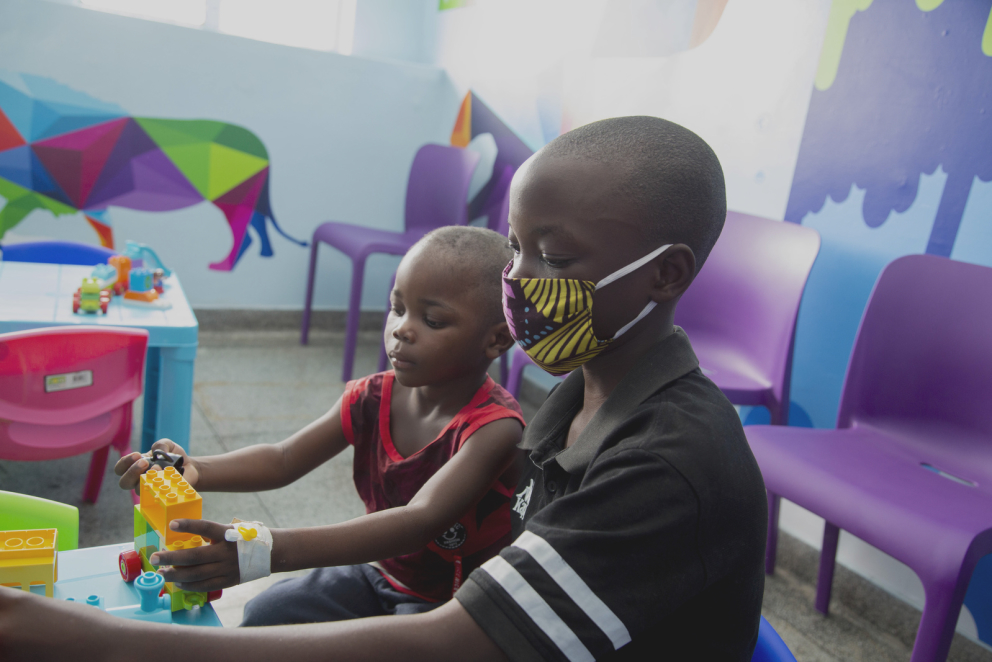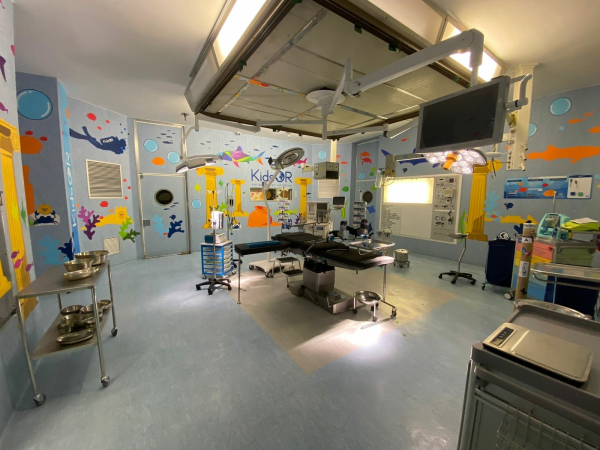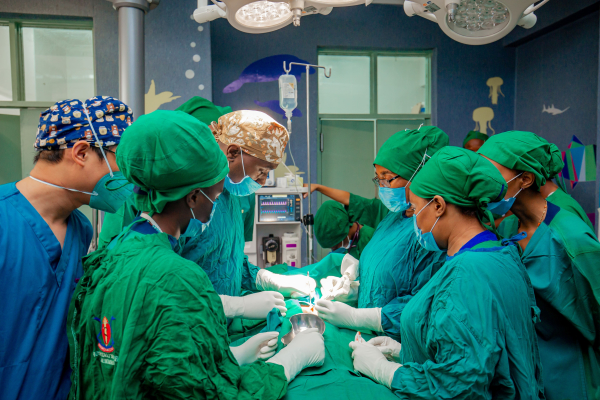
The research behind our child-friendly Operating Rooms
Kenya, Kosovo, Angola, Peru, Colombia, Laos, Ethiopia, Uganda, Morocco, Montenegro, Lebanon. These are some of the countries I have traveled to, lived in, or partnered with in the quest of one goal: to build systems that ensure every child not only survives, but also is granted the opportunity to thrive.
I share the same goal with scores of other academics, advocates, practitioners, policy-makers, from multiple sectors, disciplines, and geographies. I first encountered KidsOR through a network of faculty grantees at Yale. When my colleague Dr. Maija Cheung shared KidsOR’s mission, it took some thinking to connect to that of our research lab as historically, my work has resided in the early education and child protection sectors. We explore how best to connect the context of a child to the multiple services he or she requires during the most critical and rapid time of their development. We work with organizations such as UNICEF, the World Bank, UNESCO, and Ministries of Education. I primarily navigate projects and initiatives to promote quality early childhood education such as increasing access to preschool and parenting education/support programs.
How does this research portfolio align with KidsOR’s effort to transform ORs and improve the experience of surgical care for children around the world?
Once I started unpacking this, I quickly realized that we, KidsOR and our laboratory at the Yale Child Study Center, are speaking the same language. I realized the healthcare providers, surgeons, and advocates at KidsOR had been approaching the same goal I had of ensuring every child thrives but simply from a different vantage point. I understood we are all guided by science and a shared belief on the rights of children to quality of care.
Here are six of these critical intersections.
1. Stress reduction
The literature of the impact of early life adversity and stressors is vast. Because of the neuroplasticity of the developing brain and the other biological systems, acute traumatic or stressful events are critically meaningful for a young child. We understand there are complex risk and protective factors that interact to impact the developmental trajectory of children. These short and long-terms impacts are driven by biological factors as well as the intensity, timing, and length of exposure to stressors (which can be both acute and chronic). Our lab works towards reducing stress by enhancing quality interactions between children and their caregivers in the context of home and education settings. KidsOR shares this aim in the context of health care during a time and experience that is critically meaningful (or possibly formative) to a child. We both draw from compelling evidence on the role of nature-like (otherwise known as biophilic elements), art, and family engagement on child health and learning outcomes.
2. The association between quality and child outcomes
Quality of care matters. In the field of early childhood education, studies at scale have shown that settings of low quality can nullify any benefits of education and can even be harmful to a child’s learning and development. In education we understand quality to be a combination of structural quality (the physical environment) and process quality (markers of positive interactions between children and their caregivers or teachers). Both dimensions of quality matter and we work to ensure policies and programs are designed to guarantee both in education settings. KidsOR shares this same purpose by enhancing structural and process quality in the context of medical care for children.
3. Multisectoral approaches as a requisite to holistic child development
By definition, the goal of holistic child development requires a whole-of-sector and whole-of-society approach. Much of our work in policy development and analysis has been devoted to promoting coordination across sectors for a multidisciplinary approach as children’s needs are met cannot be granted by a single sector. Similarly, a solid understanding of children’s health and development must integrate multiple areas of research. I work hand-in-hand with developmental psychologists, neurobiologists, environmental experts, educators, economists, to name a few. KidsOR represents, similarly, an integrated vision of health, art, psychology, and other disciplines to make meaningful and sustained positive impacts across our systems of care.
4. Caring for the child’s community of care
Bioecological frameworks of child development show that determinants of children’s trajectory involve their proximal (home, school, caregivers) and distal (community, geopolitical) contexts. Much or our work focuses on strategies to provide sustained buffers and promote positive outcomes in caregivers (e.g. resilience skills, reduced parental stress) because of the body of evidence that shows parental practices, mental health, and behaviours are associated with children’s outcomes. The goal of providing an experience of surgical care that ameliorates the stress of a caregiver during a child’s medical procedure follows the key principle of caring for the caregiver to achieve meaningful impacts on the child.
5. Multilateral cooperation and local agency and empowerment
In an ever-increasingly interconnected world, international and multilateral cooperation are the modus operandi for many of us. Safeguards to avoid paternalistic, colonizing, and other harmful attributes in the context of cooperation are crucial. Ensuring that the ideas we bring from different ideological, geographic, and socioeconomic contexts lead to sustainable change and that they truly respect the agency and will of others is fundamental to our work. KidsOR’s demand-driven model is an important illustration of this core principle.
6. Children’s rights
The language of Children’s Rights is Universal. We are all bound by the acceptance of principles that guide the right to health and education. We are bound as a collective of nations, institutions, organizations, or individuals as duty bearers to the rights of each and every child. Our work, from the perspectives of early education and quality of healthcare, are key strategies in the quest to realize our duty to children around the world.
- Dr. Angelica Ponguta is a Research Scientist in the Child Study Center at Yale Institute for Global Health. Her work centres on the advancement of Early Childhood Development (ECD) in low and middle-income countries.
Share article
Recent Posts



Similar Posts
Namibia prioritising the lives of children.
Paediatric surgery included in Namibia's healthcare strategy going forward




